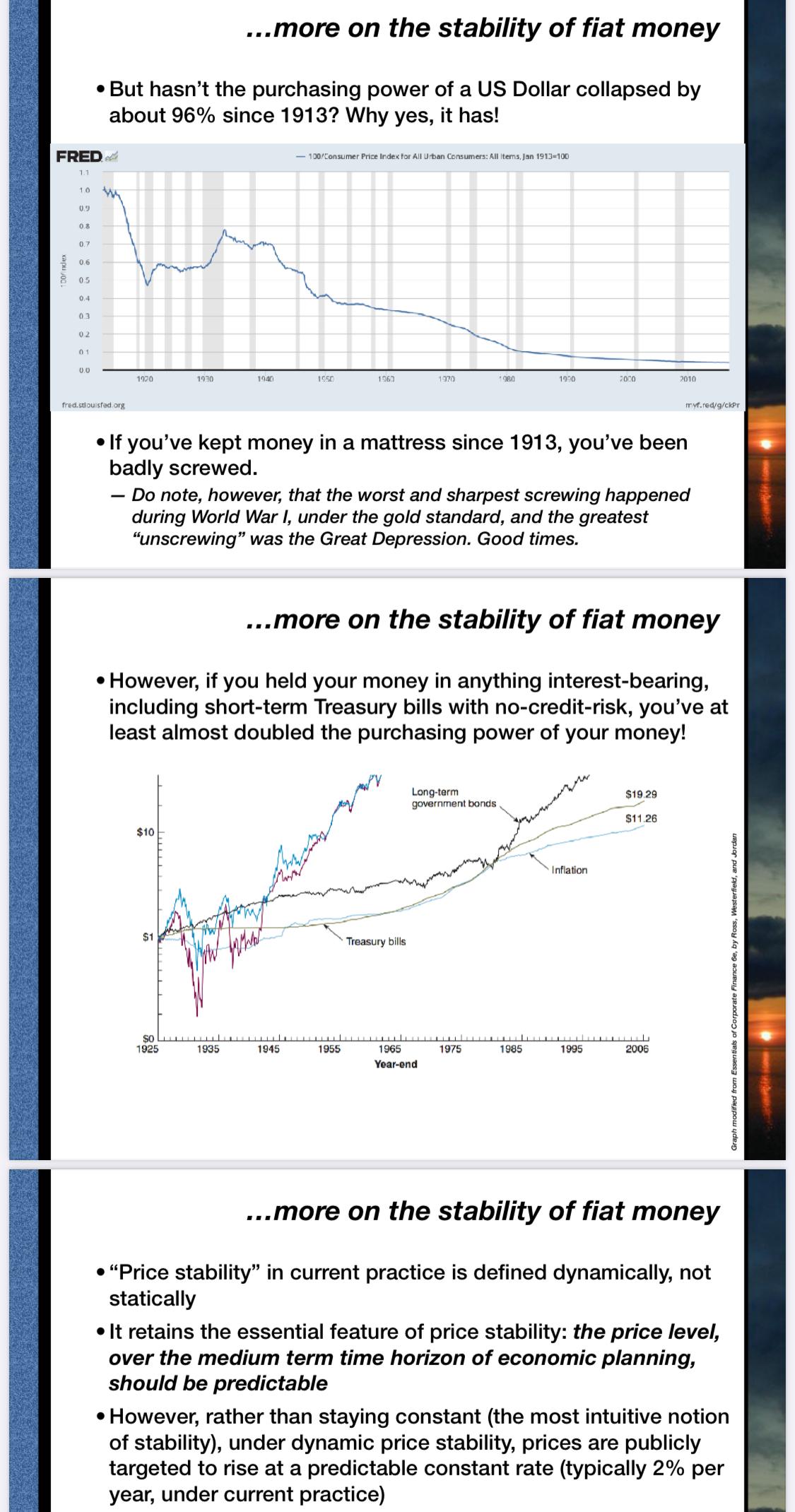@Phil @realcaseyrollins @diego The US did not have a near monopoly on anything during the period. If it had it would have been in large *surplus*, producing for the whole world, rather than in balance.
Between 1945-1950 that was roughly the case, but not afterward, 1950-1983, when US trade basically balanced.
@Phil @realcaseyrollins @diego I’ve proposed mechanisms to address balance sanely for years. As have many others. It’s a fair cop the politics have been hard. Maybe this administration was, finally, an opportunity to do the right thing.
Then, oops. In its blinkered furor, its eagerness to scapegoat, its disdain for considered action rather than gut decisionmaking, it may have discredited the cause of balance for generations.
@Phil @realcaseyrollins @diego For Christ sake, read a little bit. I just linked to a mechanism, a foreign payouts tax:
https://drafts.interfluidity.com/2025/04/01/if-we-werent-idiots-balance-of-payments-edition/index.html
The entire Bretton Woods order that prevailed from 1945 through the early 1970s was a mechanism.
Your movement is not “smacking back” because we need to. It is smacking back because it is full of people who like to smack.
existence is inconceivable, but so is its alternative.
@admitsWrongIfProven well, there might still be time!
@diego okay. but political consensus in the US would be badly shaken by a stock market crash, which even people who have little understanding of the stock market know is a disruptive event that reflects and portends economic difficulty.
but in fact, stock market fluctuations are far less dangerous than what’s happening to the dollar, US Treasury bonds, and gold.
it’s less costly, but more politically salient, so a useful signal.
@realcaseyrollins no, i’m not referring at all to quantitative easing, which is at this point ordinary and nondisruptive. i’m referring to madly scribbling and rescribbling tariffs, negotiating in ways that even usually reserved allies describe as extortion, generally behaving in ways that abruptly convince the rest of the world they don’t want to hold US paper. that might be good for trade balance, could even drive us into surplus! but via a miserably disruptive path.
it would be better if the stock market crashes us into a consensus to impeach and remove before the dollar and US Treasuries are permanently discredited.
if AI writes the law, what was the legislative intent?
@haitchfive @akkartik insisting on bilateral balance becomes similar to barter. countries can only trade when they have a double coincidence of wants.
imposing an overall near-balance constraint for each country with rest-of-world adds a huge range of degrees of freedom, ways markets can discover to, say, buy semiconductors from taiwan and sell coffee to australia which sells iron to taiwan, etc.
it's weird that about the same time of year jews and christians celebrate the unrisen and risen respectively.
@akkartik I really should have re-emphasized the point in this one… in my head they're a series but it's been almost three weeks, so several mayfly lifetimes.
@haitchfive @akkartik the key point is that Trump is trying to pursue balance in *bilateral trade relationships* which is incoherent and super-restrictive of meaningful trade.
the sensible policy is to require each country to be in *overall balance* with the rest-of-world. it is not remotely sensible to try to prevent or remedy every bilateral imbalance. if a country buys coffee from columbia but sells the same value of microchips to the US, it is in balance.
@akkartik oh, god no. please see the prior piece. https://drafts.interfluidity.com/2025/04/01/if-we-werent-idiots-balance-of-payments-edition/index.html
bilateral, as opposed to overall balance, is stupid to purse. tariffs are a terrible means, certainly to pursue balance (to which they are entirely ill suited), for the most part even for industrial policy (which they are better suited for and do perhaps arguably have some role).
